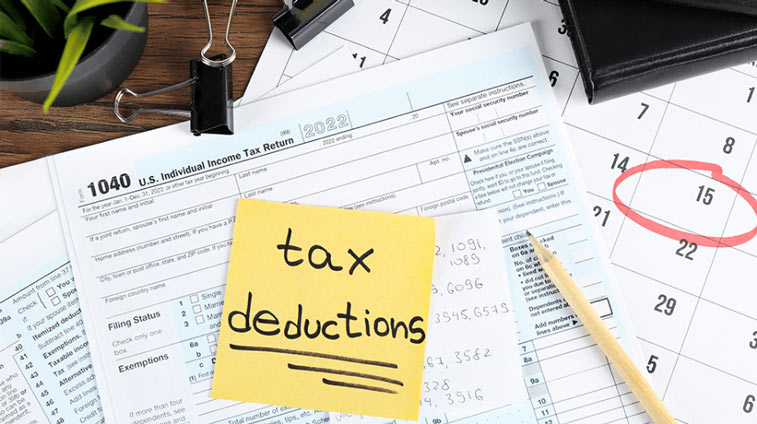Is Your State Tax Refund Taxable
Jun 02, 2023 By Rick Novak
Do you receive a state tax refund? If so, it could be taxable. Depending on your situation, any amount bigger than the sum of what was deducted from your paycheck throughout the year will be subject to taxes. This means that if your state tax refund exceeds more than you've already paid in income taxes during the period it was issued, it may be considered part of your overall taxable income and can trigger an additional bill at tax time.
This post seeks to clarify when and how a state tax refund may become taxable. We'll cover basic information about why refunds are sometimes taxed and helpful tips on reducing or eliminating such liabilities, if they arise, come the next filing season.
What is a state tax refund, and how do you qualify for one
A state tax refund is a payment issued to taxpayers from the state where they reside. This typically occurs when an individual pays more taxes throughout the year than their actual tax liability, resulting in a refund of the excess amount paid.
To qualify for a state tax refund, individuals must complete an income tax return by the due date and claim any credits or deductions they may be eligible for.
If the individual has paid more taxes than their liability, they will receive a refund of the excess amount. Furthermore, if an individual owes money to the state in taxes, the state may also issue a tax refund if certain conditions are met.
In most cases, individuals qualify for a state tax refund after filing their income tax return and determining that they have overpaid in taxes throughout the year.
The refund amount is often based on factors such as how much was withheld from wages during the year, itemised deductions taken, credits claimed, etc. In some instances, states provide special exemptions or deductions, which can result in an additional refund beyond what was initially owed by the taxpayer.
How to determine if your state tax refund is taxable or not
When it comes to determining whether a state tax refund is taxable or not, several factors must be taken into consideration. The first factor to consider is the taxes paid throughout the year versus the tax liability the taxpayer owes.
Suppose the individual has paid more taxes than their taxable income. Any excess amount may qualify for a refund and can be considered as part of their overall taxable income.
The second factor to consider is how much money was deducted from an individual's wages throughout the year. If this figure exceeds what is due in taxes for that particular period, then any portion of the refund that surpasses this will likely be taxable.
Factors to consider when determining if your state tax refund is taxable or not
When it comes to determining whether a state tax refund is taxable or not, several factors must be taken into consideration. The most important factor to consider is the amount of taxes paid throughout the year versus the taxpayer’s actual liability for those taxes. If an individual has paid more taxes than their taxable income, any excess amount may qualify for a refund and become part of their overall taxable income.
Another factor to consider when determining if your state tax refund is taxable is how much money was withheld from your wages throughout the year. If this figure exceeds what you owe in taxes for that particular period, any portion of the refund that surpasses this will likely be part of your taxable income.
In addition, it is important to note that if you receive a state tax refund due to an overpayment of taxes for the current or prior year, you may also be required to pay any additional taxes due to the amount received in your refund. This will depend on the individual's overall circumstances when they file their tax return and must be considered when determining whether a state tax refund is taxable.
Common deductions that may reduce the amount of taxes owed on a state tax refund
When it comes to reducing the amount of taxes owed on a state tax refund, there are common deductions that individuals can take advantage of. The most common deduction is for charity donations, which can provide a tax break by reducing one's taxable income. Additionally, many states offer exemptions or credits for those with low incomes or who have dependents.
Individuals who qualify for these deductions can reduce their overall tax liability and, thus, the amount owed on their state tax refund. Other allowable deductions include tuition fees paid for higher education or job-related expenses such as travel costs incurred while performing services away from home.
Other potential deductions that may apply to a state tax refund include child care expenses, non-refundable medical expenses, sales tax paid on certain items, investment-related costs such as brokerage commissions or transaction fees, and foreign taxes paid. Depending on the individual's situation and which state they reside in, other deductions may be available to help reduce the amount of taxes due on a state tax refund.
Tips for filing your state income taxes and getting the most out of your return
Filing your state income taxes and getting the most out of your return involves careful planning. Here are some tips to keep in mind:
• Claim deductions that you're eligible for, such as charity donations, job-related expenses, or tuition fees.
• Take advantage of available tax credits, which can significantly reduce the amount you owe on your state tax refund.
• File your taxes early – this will ensure you have enough time to thoroughly review all applicable deductions and credits before filing.
• Make sure to consider any other investments or foreign income when calculating your overall taxable income.
• If possible, use e-filing services to easily submit a completed return and quickly receive any refunds due.
FAQs
Q: How do I know if my state tax refund is taxable?
A: You need to consider all of the deductions made from your paycheck throughout the year and compare them to your refund amount. Some could be subject to taxation if your refund is larger than those deductions.
Q: What should I do if I think my state tax refund is taxable?
A: Seek professional advice from a qualified accountant or tax attorney. They can help you understand your situation and determine the best action for filing taxes and paying additional bills.
Q: Are there any exceptions to the taxable state tax refund rule?
A: In some cases, you can deduct losses or expenses that occurred during the year. If these losses exceed your total deductions made throughout the calendar year—including those taken from state tax refunds—then the excess could be considered non-taxable income. Additionally, certain states exempt low-income taxpayers from paying taxes on their state tax refunds. Be sure to check your state’s taxation regulations for more information about this type of exemption.
Conclusion
When figuring out if your state tax refund is taxable, it’s important to understand the details of your situation. If you think that part or all of your state tax refund may be subject to taxation, reach out to a professional who can guide you on how best to proceed. With this knowledge, you can ensure that you meet all applicable requirements at tax time and avoid potential penalties down the line.










